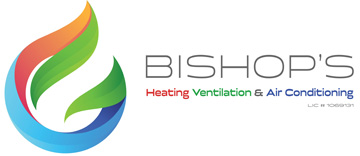
Did you perform a double take when you checked your last energy bill? While high energy bills can be the end result of intense weather events, persistently high bills can quickly suggest an inefficient HVAC system or your home is using too much energy because of other means, like drafty windows or poor insulation.
One of the simplest ways to figure out whether your home is using too much energy is by calling a home service professional to carry out a home energy audit, also referred to as a home energy assessment. Keep reading to find out more about home energy audits, including what they are and their benefits.
What Is a Home Energy Audit?
An energy audit is a custom inspection of how much energy your home uses up and whether – and where – your home could be losing or wasting energy. An inspector will take a look at previous energy bills during an energy audit to find out where energy is being wasted and how much.
The general goal of an energy audit is to help homeowners save money on their energy bills by recommending energy-efficient updates, which can include replacing your existing HVAC system, installing new insulation, sealing up leaks, or replacing loose windows.
Over the course of the energy assessment, the auditor performs an inspection of the outside and inside of your home. The auditor performs a blower door test on doorways, windows and fireplaces to determine if there are air leaks in your home. They’ll also check your home’s HVAC system, including the ductwork, the water heater, and the insulation in your attic. Exhaustive assessments might also include inspecting your current lighting system.
Benefits of a Home Energy Audit
It can be tough for the average homeowner to know for certain how efficient their home is in comparison to other similar homes in their area. However, lots of energy companies often provide information about where your home stands when compared with similar homes and whether it’s more efficient, about average, or inefficient versus your neighbors’ homes. This could be a useful starting point to determine if you need an energy audit scheduled.
Several of the benefits of a home energy audit include:
Learning How Efficient Your Home Is
It’s beneficial to know how efficient your home is and where you’re using the most energy. For example, if your ducts are leaking, it will result in a sizable increase in your energy bills and excessive wear and tear on your HVAC system because it has to stay on longer to fully heat or cool your home.
Making Energy-Efficient Improvements
An energy audit can reveal where you need to make energy-efficient improvements to save on energy and reduce utility bills. This can include replacing old weatherstripping or buying a new energy-efficient furnace.
Improving Health and Safety
Enabling air to slip into your home via doors and windows, or due to a lack of insulation can cause extra moisture to appear, which may negatively influence your home’s humidity levels or lead to mold. This can cause health problems, especially for people suffering from asthma or allergies.
Adding to Your Home’s Retail Value
Energy-efficient homes are preferred by homebuyers. You can sell your home sooner or for more money by demonstrating to prospective buyers that it’s energy efficient.
How to Perform an Energy Audit of Your Home
Although performing an energy audit independently will not be as thorough as calling a professional, it’ll give you a generalized understanding of how energy efficient your home is. If you don’t find any flaws during the DIY test, then you potentially don’t need to bring in a professional. Use this step-by-step checklist:
- Examine your HVAC system. Damaged ducts can lose as much as 20% of conditioned air, contributing to more expensive energy bills and greater wear and tear on HVAC equipment. If you find leaks, use duct tape to seal them. If your HVAC equipment is old and inefficient, upgrading to a new system can save you a substantial amount on your energy bills. In some cases, it is better to hire a reputable HVAC company to inspect your system.
- Watch for signs of air leaks. Air leaks on average can raise the energy bills by 10 to 20%. Inside, look for air leaks in areas where there could be a draft, like along the edge of flooring and near baseboards and electrical outlets. Outside, you can look for air leaks in the home’s foundation, siding and mortar. Plug, caulk or seal any air leaks to save money.
- Inspect insulation. If your home is older, it could mean your insulation is too. If you can see the joists, you likely need more insulation.
- Check ventilation. Ensure that all of your kitchen and bathroom exhaust fans are spinning properly, and look for evidence of rot or moisture.
Contact Bishop’s HVAC for a Professional Energy Audit
If you want professional help figuring out how energy efficient your heating and cooling equipment is, call the HVAC professionals at Bishop’s HVAC today. We’ve proudly serviced the residents of Sacramento with quality home services for a long time. Contact us today to set up an appointment.
